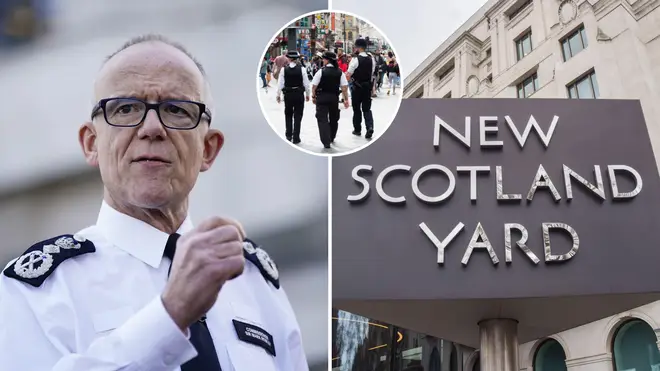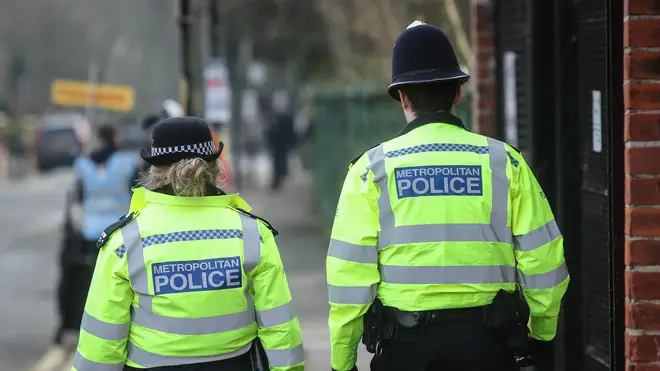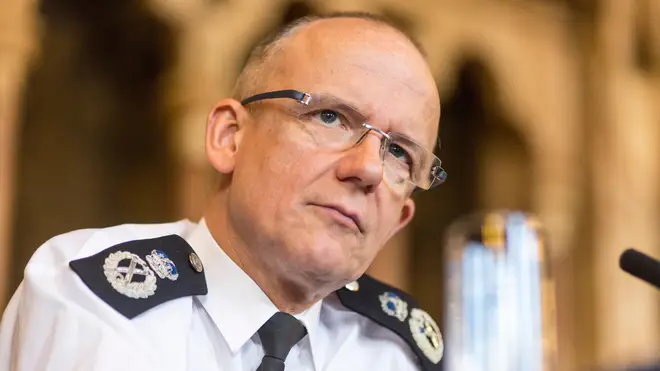
Ben Kentish 7am - 10am
30 May 2023, 00:05 | Updated: 30 May 2023, 08:54

The boss of a leading mental health charity has warned that "lives could be lost", after the Metropolitan Police announced that officers will not attend emergency calls linked to mental health incidents from September.
The force's commissioner Sir Mark Rowley has written to health and social care services to say police will not be sent after August 31 unless there is a threat to life.
The move is designed to free up officers to spend more time on their core roles, rather than dealing with patients in need of medical help from experts.
But Sarah Hughes, CEO of mental health charity Mind, says she worries the move will put vulnerable people at risk.
"My worst fears are that people will lose their lives," she told ITV News.
Listen and subscribe to Unprecedented: Inside Downing Street on Global Player
"I think that people who are in mental health crisis are often experiencing suicidal thoughts, are often in the middle of active self harm, and so it does demand police/paramedic intervention urgently."

Crime correspondent on police decision not to respond to mental health
Royal College of Psychiatrists president Dr Adrian James said the commissioner has "has obviously decided unilaterally that the Met are going to go it alone", and described the move as "unhelpful".
Speaking to BBC Radio 4's World At One programme, he said: "We don't have those resources at the current time. We also have a workforce crisis in the health service. We can't just pluck new members of staff from nowhere.
"I think it's too short a period of time. I think that Sir Mark should look very closely at whether there is some flexibility around that."
It comes after Humberside Police introduced a similar policy, known as Right Care, Right Person (RCRP) in 2020, with mental health professionals dealing with calls.
In Sir Mark's letter, seen by the Guardian, the commissioner wrote: "I have asked my team that the Met introduce RCRP this summer and withdraw from health-related calls by no later than August 31.

"It is important to stress the urgency of implementing RCRP in London. Every day that we permit the status quo to remain, we are collectively failing patients and are not setting up officers to succeed."
Read more: 'Officer Naughty' says she has been made a scapegoat for Met Police failure to catch Wayne Couzens

He continued: "We are failing Londoners twice. We are failing them first by sending police officers, not medical professionals, to those in mental health crisis, and expecting them to do their best in circumstances where they are not the right people to be dealing with the patient.
"We are failing Londoners a second time by taking large amounts of officer time away from preventing and solving crime, as well as dealing properly with victims, in order to fill gaps for others.
"The extent to which we are collectively failing Londoners and inappropriately placing demand on policing is very stark."
He said the force received a record number of 999 calls on April 28-29, but only 30 percent of them were "crime related".

A statement from the Met Police to the paper said: "Where there is an immediate threat to life, officers will continue to respond.
"In the interests of patients and the public, we urgently need to redress the imbalance of responsibility, where police officers are left delivering health responsibilities.
"Health services must take primacy for caring for the mentally ill, allowing officers to focus on their core responsibilities to prevent and detect crime, and keep communities safe and support victims."
A Metropolitan Police spokesperson told the BBC that the RCRP programme was "hugely successful in improving outcomes, reducing demand on all services, and most importantly ensuring that the right care is being delivered by the right person".
"Police are compassionate and highly skilled but they are not trained to deliver mental health care and spend an average of 10 hours with a patient when they are sectioned under the Mental Health Act.
They added: "In London alone between 500-600 times a month, officers are waiting for this length of time to hand over patients, and it cannot continue."